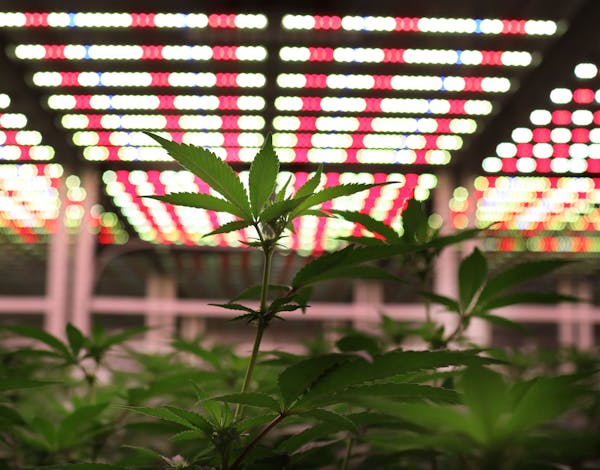Minnesota is poised to expunge more than 60,000 misdemeanor marijuana records as early as next month, according to the state Bureau of Criminal Apprehension.
The BCA has been working to expunge all misdemeanor cannabis records as required under the recreational marijuana law passed last year. BCA officials had said they expected to expunge 66,000 misdemeanor records by this August, but the bureau is now on track to complete the work sooner.
The BCA recently sent a list of records that qualify for expungement to the Minnesota Judicial Branch. The judicial branch has until May 13 to object to expunging any of the records.
If the judicial branch makes no objections, the misdemeanor cases are expected to be expunged in May, BCA spokeswoman Jill Oliveira said Tuesday. The bureau does not have contact information for the people whose records could be expunged, so it's encouraging them to watch for updates on the BCA's website.
A separate Cannabis Expungement Board has been established to review felony offenses on a case-by-case basis. Felony cannabis cases are likely to also number in the tens of thousands.
"Black and brown communities across the country tend to have been arrested at three to four times the rate for cannabis-related crimes. There's a very significant equitable impact that can be had here," said Jim Rowader, executive director of the Cannabis Expungement Board, who started the job last week.
Gov. Tim Walz appointed Rowader as leader of the Cannabis Expungement Board in late February, praising his "leadership and legal talent across public, private, and nonprofit sectors." Rowader is a former Minneapolis city attorney who's also worked for the ACLU of Minnesota and Target Corp.
Rowader said the expungement board could positively affect people's lives.
"There is collateral kind of impact that criminal records have," he said. "They can pose barriers to housing, education, employment."
People who have their records wiped clean often can obtain better jobs and housing.
State officials have identified more than 200,000 eligible felony drug cases, but not all of them involve cannabis. Rowader estimates there will be at least 25,000 cannabis-related felonies for the board to review — if not double that.
"We still have a lot of initial work to do to really dig into the data," he said.
The expungement board will not review cannabis-related felonies that involved violence, weapons or threats, as those are deemed ineligible under the law.
Reviewing all eligible cases will be an undertaking. The board is expected to have more than 30 attorneys and paralegals dedicated to the work once fully staffed, Rowader said, and it could contract with other legal clinics if more help is needed.
Rowader suggested the board might review recent cannabis felonies first. But he also wants the board to have a process allowing community members to bring their cases forward.
"I don't think we want to be in a position where we're saying, 'We'll get to your case when we get to your case,'" he said.
The board will soon begin meeting monthly and is expected to start reviewing felony cases later this year. Its five voting members will decide whether to expunge a felony record. Victims and law enforcement will be able to provide input beforehand.
"I'm very optimistic that once we get a good team in place, we can move this work along at a fairly good clip," Rowader said.

Golden Valley police investigating deadly road rage incident
Semi kills 10 cows on southeastern Minnesota highway
In South Carolina, Walz says Democrats 'need to change the attitude'
Two injured in shooting outside University of Minnesota arena after high school graduation



